The Professional Association of Robotics, Automation and Innovations unites over 80 Bulgarian and international companies that have one global objective - to establish our country as a center for technology development. To achieve this dream, they carry out quality projects at home and abroad, connecting with partners from different countries. But perhaps the most important thing that unites them is the investment of time, knowledge and resources in the education of children and young people.

In the world of technology, Bulgaria is primarily known for its software products, applications and CNC machines, says Yonko Chuklev, founder of the Professional Association of Robotics, Automation and Innovations. ''We are glad that there are well-known Bulgarian robot manufacturers'', says Yonko Chuklev:
''I can give an example of a company in Plovdiv that manufactures robots for the semiconductor industry and exports to six continents. As for the places developing high-tech products, many people have heard of the INSAIT institute, which is currently working on a robotics project with the global automotive giant Toyota. Beyond institutions, we have a solid base of enterprises developing their own research and development centers, laboratories and smart factories. Even small companies with teams comprising five or six people are trying to create products, and we want to encourage this trend''.

Is there a forward-thinking mindset necessary for developing a high-tech economy?
''In the private sector there is a mindset with the capacity to build upon previous results. For instance, one of the major electronics plants that started many years ago is now completing a new plant for complex products and has the capacity to design everything from the smallest relay to a PLC controller. Every business owner has a vision of where they want to be in 10 years—what to produce and what kind of team to build in Bulgaria. At state level, however, planning is more fragmented. We waver between national and European programs and lack a centralized strategy.''
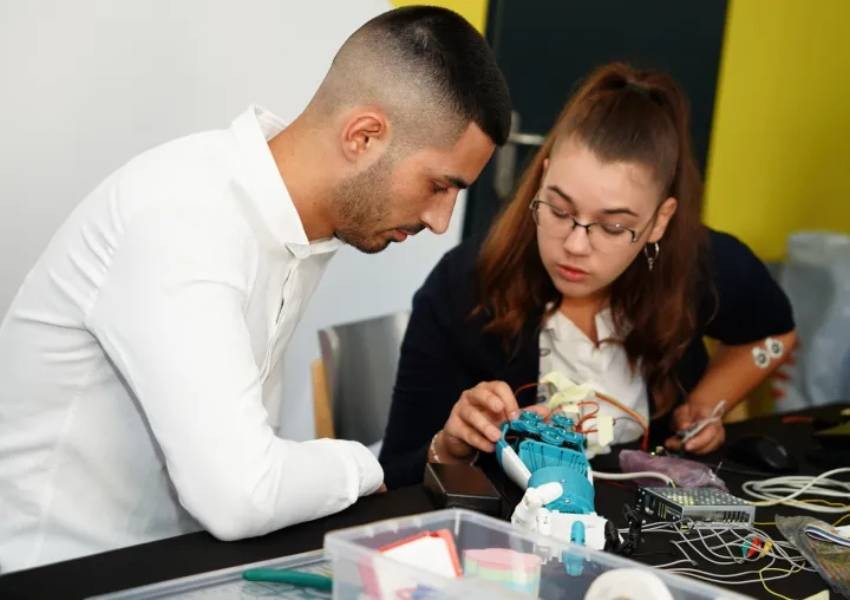
For young people, the Professional Association of Robotics, Automation and Innovations organizes a robotics incubator, provides mentors, makes laboratories accessible, etc.
''In recent years, artificial intelligence has become a priority area of interest. There is also significant interest in creating consumer electronics. Students have a great interest in creating things that will contribute to a better world such as a system for protecting bees from pesticides, a robot to help with landscaping and an exoskeleton for people with disabilities''.
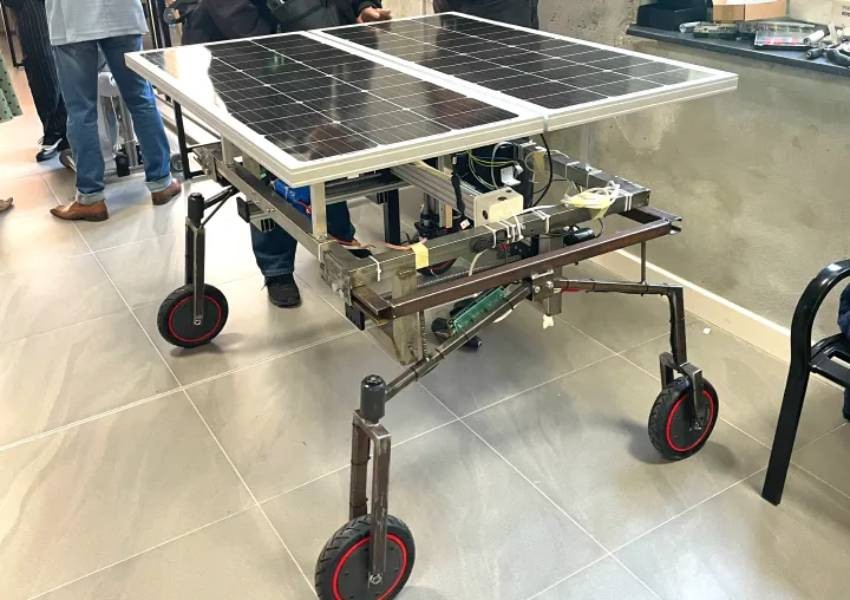
Drones used in rescue operations, as well as a weeding robot—one of the first Bulgarian projects funded by the European Innovation Council—are two successful high-tech developments recently showcased at the Robotics Strategy Forum (the biggest event in Bulgaria for innovation in robotics and autonomous technologies). Yonko Chuklev also highlights software platforms that assist in managing robots and smart machines abroad.
One of the questions that arises when we look into the future is what role robots and advancements in the high-tech field will play in people's lives, in the organization of society and the national security.

"It depends on the country of application – says Yonko Chuklev. – In Asia, people are much more inclined to accept robots in their daily lives. In Europe and America, we are not so open to welcoming humanoid robots. We have robot waiters in several places in our country, but apart from that, we are still skeptical, and I am not sure if this will change in the future. As for the security sector, it is a matter of international legislation whether robots have a place on the battlefield. This is a very broad topic''.
According to Yonko Chuklev, social services are the big area where robotics will have a useful effect on our continent- in helping people with disabilities, in nursing homes, as a tool for working with children with autism, etc. In general, medicine is one of the sectors where high-tech innovations and smart therapies are making rapid advancements.
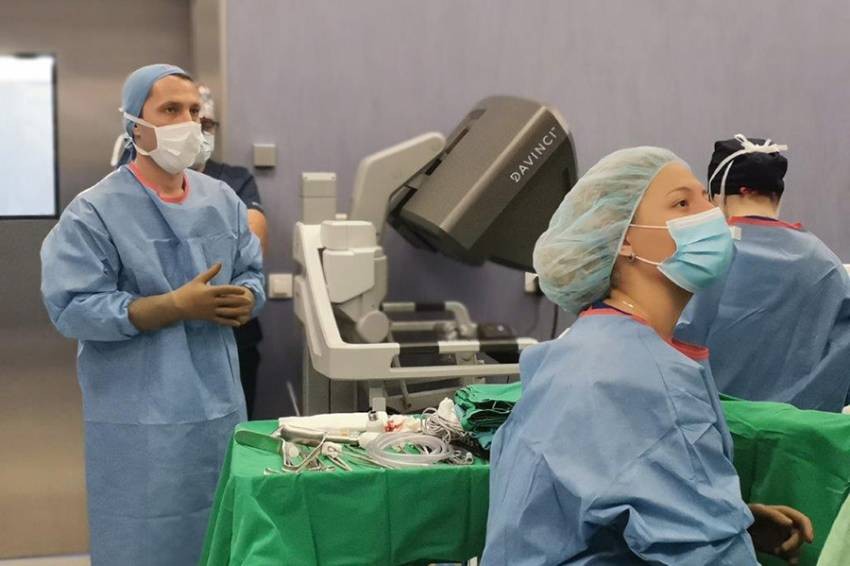
''Bulgaria is one of the pioneers in the Balkans in the use of the 'Da Vinci' surgical system"– explains the founder of the Professional Association for Robotics, Automation and Innovations. – At the 11th robotic surgery congress, Bulgarian surgeons demonstrated a remote surgery between Sofia and Pleven using a robotic system. We are doing quite well, at least at the regional level.''
New technologies that assist humans in various activities undoubtedly bring benefits. But do they pose risks to human development?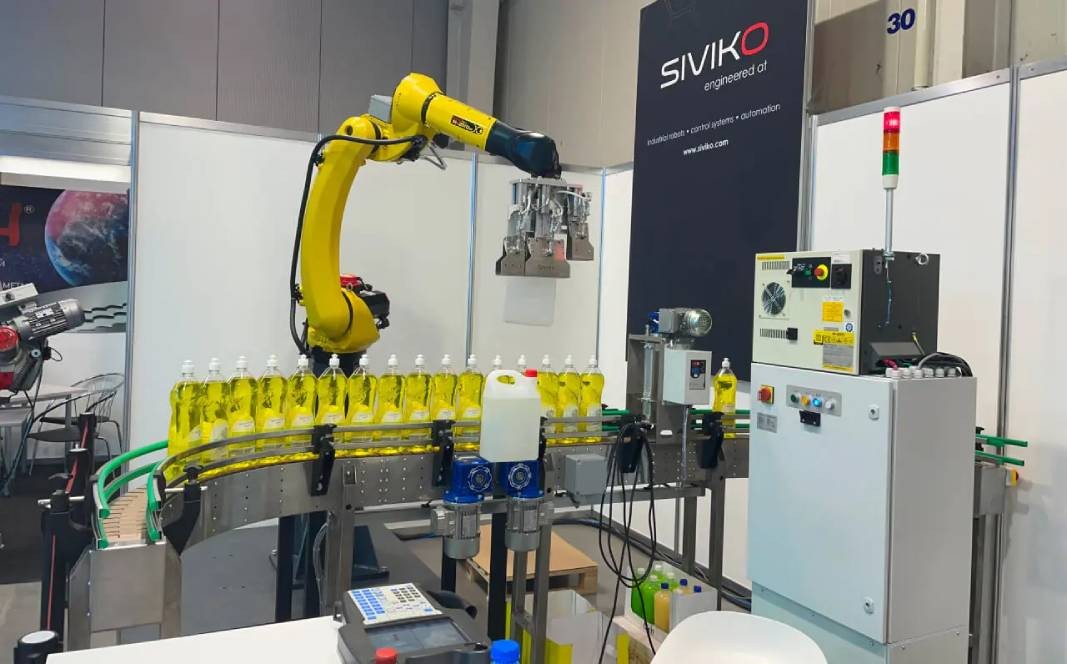
''Robots are not engaged in particularly interesting activities around the world. There is a tendency for people to assign more and more tasks to artificial intelligence to avoid using their minds, and each person must find the balance between using artificial intelligence and using their own minds. I see a risk in the use of technologies that aim to assist users in writing and solving various everyday tasks, rather than in robots performing routine and dangerous tasks''.
Yonko Chuklev gives an example of how we remember less and less information that can be found with just one click.
"Nowadays, most people don't remember a single phone number— except maybe their own one''.
While we are doing the interview, some child is perhaps thinking about how to do their homework with ChatGPT, says Yonko Chuklev.
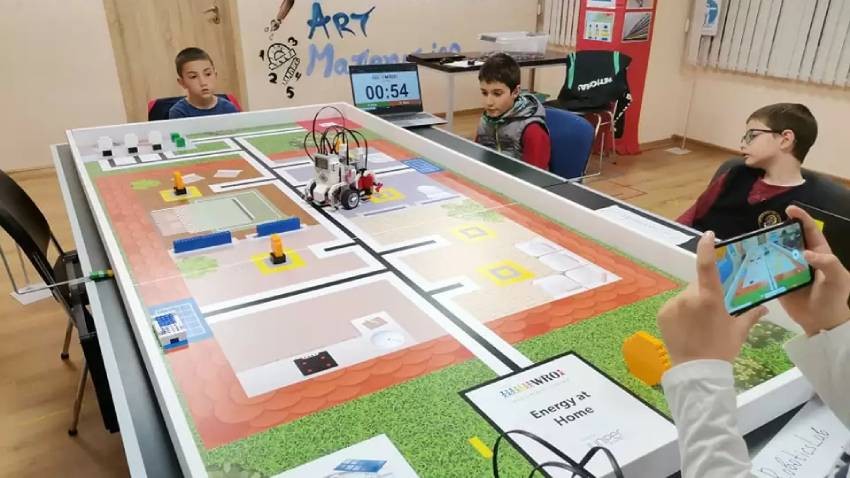
''Schools should not turn a blind eye to the fact that children use this technology. Both parents and teachers must teach them to use it consciously. We are still like ostriches with our heads buried in the sand, but these two steps are crucial for us to be able to use not only technology but also our own minds in the future''.
Translated and published by Kostadin Atanasov20 nominees from 11 countries – that is the number of contenders for the “Bulgarian Woman of the Year 2024”, named in honour of Saint Zlata of Meglen . The award has been presented every year since 2009 by the Executive Agency for Bulgarians Abroad..
An initiative committee led by the historian Georgi Markov, has proposed that a monument to Khan Asparuh, the founder of the Bulgarian state, be erected on the site of the former Soviet Army Monument in Sofia, in order to serve as a unifying symbol for..
The Bulgarian dance group “Dilmana” based in Copenhagen will celebrate 15 years since its establishment with a celebration on October 18, the formation informed on its Facebook page. Dance group Dilmanа from Copenhagen to perform at the folklore..
At 04:00 Bulgarian time on October 26, 2025, we must turn our clocks back one hour. This means one more hour of sleep, but it..
The cool autumn evenings give us a reason to immerse ourselves in the cosy atmosphere of restaurants in Sofia and try new flavours..

+359 2 9336 661
